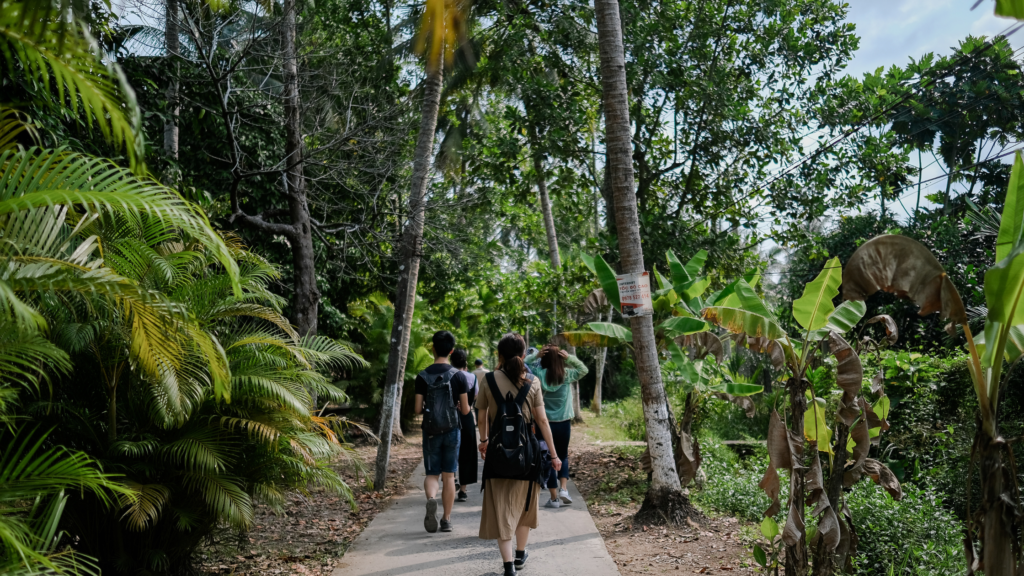Sustainable tourism is not just about pretty beaches and fancy hotels. It is changing the game in global development. Take Bottom Billion Corporation (BBC) for example. They’re all about boosting economies and lifting up folks who often get left behind. Sustainable tourism fits right into their playbook. So, what’s the big deal? Well, we’re going to dig into how this kind of tourism is pumping life into economies and what it takes to make it work. We’ll look at practical ways to make tourism greener and more community-friendly.
Understanding Sustainable Tourism

Definition and Importance
Sustainable tourism refers to travel practices that minimize environmental impact, respect local cultures, and provide economic benefits to local communities. It aims to balance economic growth with environmental sustainability and social equity. It ensures that future generations can enjoy and benefit from tourism activities without depleting natural resources or harming cultural heritage.
Key Principles
- Environmental Sustainability: Minimizing waste, conserving natural resources, and protecting biodiversity.
- Social Equity: Respecting local cultures, supporting community development, and promoting fair labor practices.
- Economic Viability: Ensuring long-term economic benefits for local communities and businesses.
Economic Benefits of Sustainable Tourism
Job Creation
Sustainable tourism generates employment opportunities in various sectors, including hospitality, transportation, and local crafts. By promoting eco-friendly practices, it creates jobs that support environmental conservation and community development.
Income Generation
Tourism provides a significant source of income for local communities. Sustainable tourism ensures that the economic benefits are distributed fairly, enhancing the livelihoods of residents and reducing poverty.
Infrastructure Development
Investment in sustainable tourism often leads to improved infrastructure, such as better roads, clean water supply, and waste management systems. These developments benefit both tourists and local communities, enhancing the quality of life.
Strategies for Promoting Sustainable Tourism
Community-Based Tourism
Community-based tourism involves local communities in the planning and management of tourism activities. This approach ensures that tourism benefits are distributed equitably and that local cultures are respected and preserved.

Eco-Friendly Practices
Implementing eco-friendly practices, such as reducing waste, conserving water, and using renewable energy, minimizes the environmental impact of tourism. Eco-certification programs can help businesses adopt and promote sustainable practices.

Cultural Preservation
Sustainable tourism respects and preserves local cultures by promoting cultural heritage sites, supporting traditional crafts, and encouraging tourists to engage with local communities respectfully.

Education and Awareness
Raising awareness about the importance of sustainable tourism among tourists and local communities is crucial. Educational programs and campaigns can promote responsible travel behaviors and encourage support for these tourism initiatives.

Challenges and Solutions
Overcoming Barriers
Despite its benefits, it faces several challenges, including lack of awareness, financial constraints, and resistance to change. Addressing these barriers requires targeted interventions, such as providing financial incentives, offering training programs, and promoting successful case studies.
Policy and Regulation
Governments play a critical role in promoting this kind of tourism through policies and regulations. These can include incentives for eco-friendly practices, strict environmental standards, and support for community-based tourism initiatives.
Successful Sustainable Tourism Initiatives
Costa Rica

Costa Rica is renowned for its commitment to sustainable tourism. The country has implemented numerous initiatives to protect its biodiversity, promote eco-friendly practices, and support local communities. As a result, Costa Rica has become a leading destination for eco-tourists.
Bhutan

Bhutan follows a unique approach to tourism, focusing on high-value, low-impact travel. The country prioritizes cultural preservation and environmental sustainability, ensuring that tourism contributes positively to its Gross National Happiness.
Sustainable tourism can boost local economies while protecting the environment and honoring local cultures. It’s about giving tourists amazing experiences while making sure the locals benefit too. This approach fits perfectly with what organizations like Bottom Billion Corporation are all about – they’re all in on supporting economic growth and giving a leg up to communities that often get overlooked. By getting behind sustainable tourism, we’re not just creating great vacation spots. We’re building a future where travel can be a force for good, benefiting everyone involved. It’s smart business that also happens to be the right thing to do.



